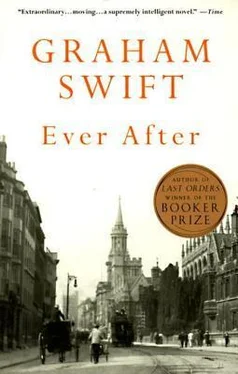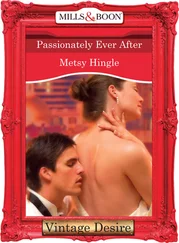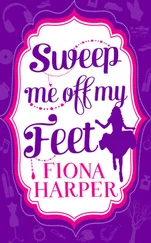We must have come in the new Armstrong-Siddeley: one of her madcap drives — hands fluttering over the steering-wheel — through pulsing tunnels of trees, hazy troughs of heat and the dry, ropey smell of harvest time. I don’t remember if we stopped on the railway bridge — completing that child’s encyclopaedia picture — to watch a train billow through beneath us. And I still don’t know (I certainly didn’t know then) whether this outing to Aldermaston held for her some special, extra frisson . But I remember the blatant fact that as we took our tea (lemonade for me) the top three buttons of her blouse were undone — there was a little sheen of sweat at the base of her throat — and I remember thinking (the first time, perhaps, I had had such thoughts) that this fact was not only remarkably compelling in itself but also remarkably complex, fraught with unsteadying repercussions, such as: did she know that the buttons were undone, and if she did, why didn’t she do anything about it? And was it more proper for me, as a gentleman, to point out this little omission or to say nothing?
The blouse was cream silk (even in those war-pinched days). A white strap, thin and shiny like a ribbon and lifting from her skin where it crossed her collar-bone, was visible. The just discernible fringe of the garment to which it belonged had a filigree tenuosity, curiously evocative of the doily that bore our angel cake and macaroons.
Who now connects Aldermaston with the William’s pear, first produced there in seventeen hundred and something by a local schoolmaster? But in those days it was one of Aldermaston’s little claims to fame and it was the done thing, in season — and this year they had ripened early — to buy them while you were there. My mother had bought two (“a pair of pears”), wrapped in a brown paper bag, and, for some reason, over our sticky and crumb-strewn tea plates, she chose to give a brief lecture on the local genesis of this distinguished fruit.
At that time (aged eight-and-a-half) I had no conception that pears might be made . As far as I was concerned, they grew on trees. And I couldn’t tell a William’s from a Conference or a Comice — I am still hazy on such things. But my mother, who was no doubt proud of her little scrap of knowledge and who would now and then have this curious urge to be my instructress, took it upon herself to enlighten me.
And yet — do I remember this correctly? — having launched eagerly into her subject (I picture the old schoolmaster as rather like the rector of Burlford — with one it was bees, with the other, fruit propagation), she drew herself up suddenly on the brink of a tricky discourse on cross-fertilization, and said, “Oh well, never mind.” Perhaps I had protestingly voiced my thought—“But pears can’t be made !”—and she had said, “Oh yes, they can!” At any rate, she cut short the lecture. Then she proposed that we eat our pears.
It was, of course, the riddle of hybrids and cross-breeds that set the Sage of Kent thinking.
Outside, the afternoon was a hot, chalky glare. A canvas awning kept it at bay. An arc of black lettering on the window, above the little skirt of lace curtaining, proclaimed in reverse the name, which I forget, of the premises within. Spoons clinked. A fly-paper twirled slowly beneath the ceiling. Doubtless, there were other tea-takers at other tables and, doubtless, there was some bustling proprietress with a sugary smile, and a flustered teenage waitress. I don’t know — why should I have noticed? — if any of them were giving my mother looks. I don’t know if she still had, in the reckoning of country villages with limited horizons but long memories, a certain reputation.…
And only now does an extraordinary thing occur to me. I can pinpoint, after all, the date and the purpose of this little jaunt exactly. My father (let me call him that) was, as he had been for most of that summer, away. Some of the wartime secrecy of his whereabouts had been lifted and I knew for a fact that he had gone to Washington.
Not that this meant much to me. I now recall an earlier and more ambitious lecture of my mother’s, which aimed at nothing less than a brief history of the world, or at least the New World, a concept quite beyond me, since I was still at that stage of infancy (Paris would end it) when I vaguely suspected that the existence of foreign countries was a clever adult fiction. Washington, apparently, was called Washington because of George Washington, who had made America American. But, before that, America had belonged to us — it was really British. There was also something, to add to the confusion, about a cherry tree. These great men and their trees.
August 1945. August 5. It was my mother’s birthday. That was the point of this tea-time excursion. I was “taking her to tea.” My father was in Washington, and it was my mother’s birthday; and, as it was her birthday, there was a chance he might telephone at any moment. Think of that — a phone call all the way from America. (But would that prove — I was sceptical — that America really existed?)
By lunchtime no phone call had come (my scepticism increased). But apparently there was still plenty of time. You had to remember that over there they were only just having breakfast. A likely story. Perhaps she saw my disbelief, and perhaps rose to the challenge of another lecture — but thought twice about it. Waving the whole matter aside, she said, “But what a gorgeous day! Where are you going to take your mother for her birthday treat?”
The past, they say, is a foreign country, and I fictionalize (perhaps) these memories of that afternoon. But then my mother is dead. With all the others. She doesn’t exist. And fiction is what doesn’t exist. Did she really, right there and then in the tea-shop, hold up before her by its stalk her William’s pear, as if inviting me to snatch it, or as if she might suddenly let it fall? A small age seemed to pass in which it dangled between us, like a hypnotist’s watch, and in which my mother, her eyes swimming in and out of focus, seemed like a woman I was just beginning to know.
Then she bit, voraciously, into the plumpest part.
A lesson in gravity? Or in levity? Eternal levity. She couldn’t have known, any more than I, that in a far-away foreign country, where it was several hours later than us, where night had already fallen, they were about to drop a bomb. That for ever afterwards she would share her birthday with the anniversary of the last pre-atomic day.
She took a bite, a good, lip-splaying bite, out of the pear. Juice ran — a drop, a splash or two of pearly pear juice in that baffling opening of her blouse. Her tongue made slurpy noises, her eyes wallowed.
“Mmmm, darling — divine.”
The sun is beginning to sink. The shadow of the bean tree creeps over the lawn. Across the river, the towers and turrets, the little twinkling arched and latticed windows, take on their evening aura. These ancient walls. These hallowed groves. So ripe with the steady defiance of time, with the presumption of mind over matter. So evocative of the King of Navarre’s other-worldly schemes, of Berowne and Longaville and Dumaine: “a little academe, still and contemplative in living art …”
“Worthies, away!..”
It was my mother who first warned me, invoking the examples of vainglorious grandfathers and great-uncles, against the ruinous desire to outwit mortality. And, having heeded her advice so far as to rush, spontaneously, into death’s arms and having returned from its apparently escapable embrace, what can I say about this old and terrifying bugbear, mors, mortis ? That it turns you (surprise, surprise) into a nobody. That my little bout with it has left me with a ghostly disconnection from myself — I am wiped clean, a tabula rasa (I could be anybody) — and a strange, concomitant yen, never felt before, to set pen to paper.
Читать дальше












